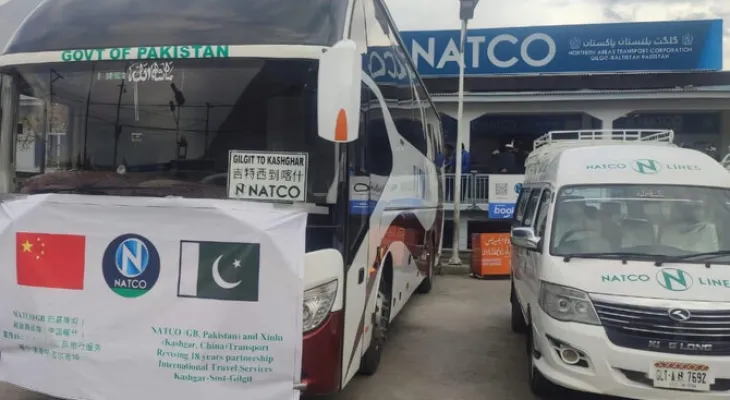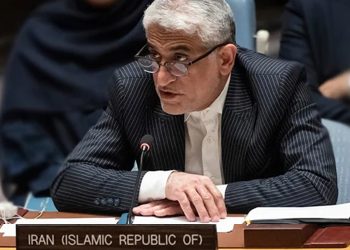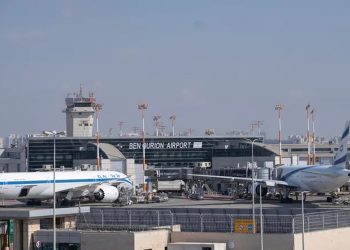A bus service connecting Pakistan and China through the Khunjerab border pass resumed on Tuesday after a 14 years hiatus.
The bus service is operated by a Pakistani government-owned company and a leading Chinese transportation organisation.
The bus service used to operate on the Khunjerab Pass, which connects Pakistan’s Gilgit-Baltistan to China’s Xinjiang region. It was suspended in 2010 after a massive landslide at Hunza’s Attabad village damaged a 14 kilometer portion of the Karakoram Highway (KKH) connecting the two countries. The landslide killed at least 20 people and displaced 6,000 in the area.
The damaged road was restored by the GB government while the Northern Areas Transportation Company (Natco), a Pakistan government-owned company, collaborated with the Chinese transportation company Xinjiang-Kashgar Xin Lu Transportation Co. Ltd.,to restore the bus service from Gilgit to China’s Kashgar city.
“After 14 years, the bus service resumed officially from Tuesday,” Aziz Ahmed Jamali, Natco’s managing director, told Arab News over the phone. “The bus will run for this route twice a week and the fare per passenger is Rs18,000 [$64.69].”
Jamali said at least 320 passengers will be able to travel by the bus service each month.
“Natco has been serving in Gilgit-Baltistan since 1974 and it carries 500,000 passengers every year,” he said. “It is operating on 40 routes across GB at national and international destinations.”
The Natco official said direct traveling from Gilgit to Kashgar will save traders time and enhance their economic opportunities.
“After a long time, the bus service between Pakistan and China has resumed. It will enhance the connectivity between the two regions,” said Iman Shah, special assistant to GB’s chief minister on information.
Shah described the bus service as an “urgent need” to accelerate travel and trade between Pakistan and China.
“I have also traveled to China from Gilgit in a Natco vehicle in 2003-4,” Shah said. “Now this time we have modern buses and it will be very beneficial for both countries.”
































